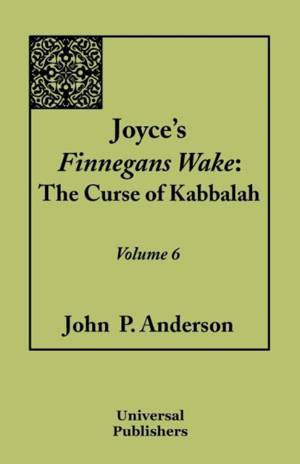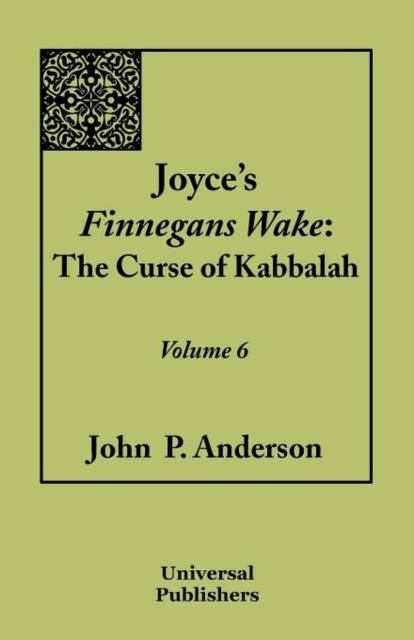
- Afhalen na 1 uur in een winkel met voorraad
- Gratis thuislevering in België vanaf € 30
- Ruim aanbod met 7 miljoen producten
- Afhalen na 1 uur in een winkel met voorraad
- Gratis thuislevering in België vanaf € 30
- Ruim aanbod met 7 miljoen producten
Zoeken
€ 64,45
+ 128 punten
Uitvoering
Omschrijving
This sixth in a series continues this non-academic author's ground-breaking word by word analysis of James Joyce's Finnegans Wake. This volume covers all of the long chapter 2.3 with the intent to explore its 80 pages as an art object. Coming off the last chapter about children, the role performed in the case of children by over-bearing parents is taken over by imperialistic forces in the case of adults. The imperialists consume weak adult spirits by telling them what to do. Anal-retentive children become passive/aggressive adults under the direction of imperialists. They are the "head liners" in this chapter. The spirit imperialists in this chapter range from the church allowing you to experience the joy of sexual intercourse only in the harness of the properly married state, to the state ordering you to kill other humans, to your customers whose desires you must appease in order to do business and to your collective unconscious which houses the collective bulletins registered in human experience. All of these usurpers are deployed to limit your free will and tell you what to do. They speak to your outer ear in order to smother the voice in your inner ear. In terms of RCC theology related to the human spirit, the Holy Spirit is at least theoretically the source of mutuality and is supposed to infuse the spirit of the joined father-son divine mutuality into our human relationships. But that spirit has since Pentecost been locked up in and administered exclusively by the church through its sacraments. In Joyce's theology, a passive Holy Spirit sequestered in the church does register the relationship in the trinity of father and son, but that relationship is not charity but the domination of the father over the son. Joyce sees this father dominance in Christ's fearful reluctance in the Garden of Gethsemane. In this chapter the three main victims made passive by the spirit imperialists are the Captain in the Norwegian Captain tale, Buckley in the Buckley and Russian General tale, and Earwicker in his own pub. The subject arenas for passivity are sex, war and earning a living. In the background as always with Joyce is the passivity of Eve and Adam in the Garden, a passivity that let aggressive TZTZ god into their spirits as fear and dependency and was laid down in the collective unconscious. The setting for this chapter about the human spirit is the sale of alcoholic spirits by Earwicker in his Pub aptly named the "House of Call." With "stout" flowing into glasses and coins pinging into his till, this chapter focuses on what else in the process the Proprietor Earwicker sells to the consuming patrons. And that what else is his own stout, his own spirit. Even though he is the Proprietor, he no longer owns himself. He takes their "orders" and then takes their orders. The audience in this pub setting is exclusively male. And inasmuch as the alcohol does the talking, when these males do and say what they want, they listen to the same old stories and banter at rather than talk to each other. There is no union or communion or mutuality-promoting conversation. Passive/aggressives yell at each other but don't communicate, communication being the mutuality-based network of the Holy Spirit. In a pun that connects much of this chapter, juvenile psychosexual "hang-ups" become telephone-type "hang-ups" in adult communication and mutuality.
Specificaties
Betrokkenen
- Auteur(s):
- Uitgeverij:
Inhoud
- Aantal bladzijden:
- 498
- Taal:
- Engels
Eigenschappen
- Productcode (EAN):
- 9781612330990
- Verschijningsdatum:
- 12/04/2012
- Uitvoering:
- Paperback
- Formaat:
- Trade paperback (VS)
- Afmetingen:
- 140 mm x 216 mm
- Gewicht:
- 571 g

Alleen bij Standaard Boekhandel
+ 128 punten op je klantenkaart van Standaard Boekhandel
Beoordelingen
We publiceren alleen reviews die voldoen aan de voorwaarden voor reviews. Bekijk onze voorwaarden voor reviews.











